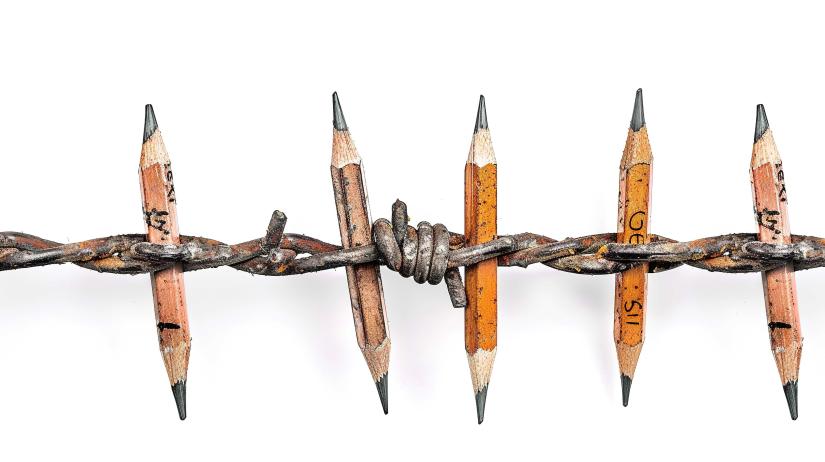
Australia's ranking on the 2024 World Press Freedom Index plummeted by 12 positions this year, dropping from 27th place in 2023 to 39th. This significant decline stands out, especially when contrasted with neighbouring countries such as New Zealand (19), Timor-Leste (20), Samoa (22), and notably Fiji, which surged to 44th place compared to 89th in 2023. Fiji's notable rise in the index is closely tied to the repeal of a draconian media law implemented by the government that took control through a coup in 2006.
So, what actions, or lack thereof, have contributed to Australia's decline on the index?
To begin with, the array of national security legislation passed by successive Australian governments over the past two decades, surpassing any other nation, is increasingly limiting press freedom in various ways. While there isn’t an immediate threat of violence or arbitrary detention for journalists in Australia, there are numerous laws regarding national security, espionage, and data encryption that curb media freedom, and even legalise the confiscation of documents during an ongoing journalistic investigation.
Flashback to 2019, when the Australian Federal Police raided ABC’s Sydney offices and seized over 124 files related to the Afghan Files report uncovering war crimes by Australian special forces in Afghanistan; or to 2015, when federal government agencies were discovered repeatedly referring journalists' reporting on asylum-seeker policies to the police, aiming to uncover confidential sources and whistleblowers.
Peter Greste, a prominent advocate for media freedom in Australia, contends that some of the current legislation criminalises practices that were considered legitimate journalism in the past. He argues that these laws not only subject journalists’ data to intrusive scrutiny by security and intelligence services but also expose sources to criminal prosecution.
Another concern in Australia is the lack of protection for whistleblowers, resulting in attacks on individuals like David McBride, an Australian whistleblower due to be sentenced on 14 May. McBride’s case exemplifies what Greste refers to as the “government saying one thing by talking up its commitment to whistleblower protections while doing the opposite.” Although his intention was not to blow the whistle on war crimes, it was McBride who leaked classified documents to ABC journalists in 2014 and 2015, leading to the AFP raids. These events were followed by the 4-year Brereton inquiry, which uncovered evidence of war crimes in Afghanistan between 2003 and 2016.
Media ownership is yet another factor contributing to Australia’s decline on the index. After China and Egypt, Australian media ownership is the most concentrated in the world.
However, where Australia notably faltered was in the sociocultural context, one of the five metrics used to assess the state of press freedom. Apart from assaults on the press related to matters such as gender, class, ethnicity, and religion, this metric evaluates the ‘pressure on journalists to not question certain bastions of power or influence or not cover certain issues because it would run counter to the prevailing culture in the country or territory’.
While it is not known what particular events informed the rankings, in my opinion, there are plenty of candidates over the past year, including Nine’s papers censoring journalists who signed an open letter calling for balanced reporting on the Israel–Hamas conflict, and the federal government's so-called ‘anti-doxxing’ laws.
Yet, amidst all this, Alexandra Wake, president of the Journalism Education and Research Association of Australia, is hopeful. She says Peter Greste's Media Freedom Act is an important initiative and hopes that the Act and accompanying register of ethical journalists will assist in regaining trust in public interest journalism. But for now, she says, ‘it’s refreshing that we must look to the Pacific for examples of strong and ethical journalism.’

Ayesha Jehangir, CMT Postdoctoral Fellow

